Cannabis is more than just a plant. It’s a complex mix of compounds that each play a unique role. Two of these compounds, THCA and THC, often get mixed up.
But they’re not the same thing. Let’s break it down.
At first glance, THCA and THC might seem like twins. But look closer, and you’ll see they’re more like cousins.

THCA, or tetrahydrocannabinolic acid, is the raw, unheated form of THC. It’s got an extra carboxyl group hanging off its molecule. THC, on the other hand, is what you get when THCA loses that group.
Think of THCA as the shy kid at the party. It’s there, but it’s not really interacting with anyone. THC? That’s the life of the party, chatting up everyone in sight.
SmartCBDHub
Here’s where things get interesting. When you apply heat to THCA, it goes through a process called decarboxylation. Fancy word, right? It just means the molecule loses its carboxyl group and becomes THC.
It’s like watching a caterpillar turn into a butterfly. Except in this case, the butterfly might make you giggle and crave snacks.
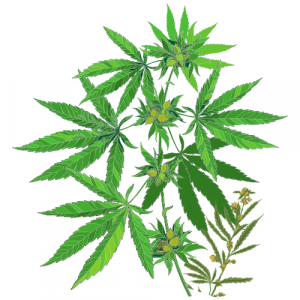
Both THCA and THC come from the same place: the cannabis plant. But they show up at different times in the plant’s life cycle.
When cannabis is growing, it doesn’t actually produce THC. Surprise! It makes THCA instead. This compound is found in the trichomes, those tiny, crystal-like structures on the plant.
If you could shrink down and walk through a forest of cannabis trichomes, you’d be surrounded by THCA molecules. But you wouldn’t feel high. Not even a little bit.
THC only shows up when THCA is exposed to heat or as the plant dries and cures over time. It’s like THCA is the mild-mannered reporter, and heat is the phone booth that turns it into Superhigh-man.
This is why eating raw cannabis won’t get you high. Your body heat isn’t enough to make the change. But light it up, and that’s a different story.
Here’s where the rubber meets the road. Or should I say, where the joint meets the lighter?
THCA doesn’t make you feel high. At all. You could eat a bowl of THCA for breakfast and still ace your driving test. (Don’t actually do this. It would taste terrible.)
This non-intoxicating nature makes THCA interesting for people who want the potential benefits of cannabis without the psychoactive effects.
THC, on the other hand, is the star of the show when it comes to getting high. It binds to receptors in your brain and body, causing that familiar cannabis buzz.
It’s like THC has the key to a secret door in your mind. When it turns that key, things get… interesting.
Both THCA and THC have caught the eye of researchers for their potential health benefits. But they’re not interchangeable.
While research is still in its early stages, some studies suggest THCA might have anti-inflammatory properties. It could also help with nausea and appetite issues.
One study even hinted that THCA might protect brain cells. But don’t go munching on raw cannabis just yet. We need more research to know for sure.
THC has been studied more extensively. It’s used to treat conditions like chronic pain, muscle spasms, and nausea from chemotherapy.
Some folks swear by THC for help with sleep and anxiety too. But remember, it’s not a one-size-fits-all solution. What works for one person might not work for another.
How you use cannabis can make a big difference in whether you’re getting THCA or THC.
To get THCA, you need to keep things cool. Literally. Raw cannabis leaves and buds are full of THCA. Some people juice them or add them to smoothies.
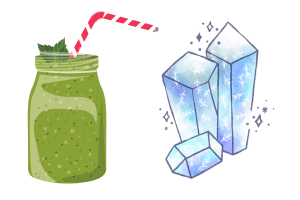
There are also THCA crystals and tinctures available in some markets. These products aim to preserve THCA in its original form.
For THC, heat is your friend. Smoking and vaping instantly convert THCA to THC. Edibles work too, because the baking process causes decarboxylation.
Oils and tinctures often contain active THC as well. Just remember, with THC products, a little can go a long way.
The legal landscape for cannabis is… complicated. And the THCA vs THC distinction adds another layer to that complexity.
Here’s where things get tricky. Some argue that THCA should be legal because it’s non-intoxicating. In fact, some hemp-derived THCA products are sold in states where THC is illegal.
But the law isn’t always clear. In some places, THCA is treated the same as THC. It’s a gray area that’s still being figured out.
THC’s legal status varies widely. In some places, it’s fully legal for adult use. In others, it’s only allowed for medical purposes. And in some areas, it’s completely illegal.
Even where it’s legal, there are often restrictions on how much you can possess or buy. It’s like a patchwork quilt of laws, with each state (and sometimes each city) having its own pattern.
If you’re worried about drug tests, pay attention. THCA and THC can show up differently.
SmartCBDHub
Most standard drug tests don’t look for THCA specifically. But here’s the catch: THCA can sometimes convert to THC in your body or during the testing process.
So while pure THCA shouldn’t cause you to fail a drug test, it’s not a guarantee. It’s like playing Russian roulette with your job, and that’s not a game anyone wants to play.
THC, on the other hand, is what most drug tests are looking for. Or more accurately, they look for THC metabolites – the byproducts your body produces after using THC.
These metabolites can stick around for a while. How long depends on factors like how much and how often you use, your metabolism, and the type of test. It could be days or even weeks.
Here’s a cool concept: the entourage effect. It’s the idea that cannabis compounds work better together than alone.
Some researchers think THCA and THC might have a synergistic relationship. Like peanut butter and jelly, they could be better as a team than solo acts.
But we’re still learning about this. It’s an exciting area of research that could change how we think about cannabis.
The world of cannabis research is booming. And THCA vs THC is right at the heart of it.
Scientists are digging deeper into THCA. They want to know more about its potential benefits and how it interacts with our bodies.
Could THCA be the key to getting cannabis benefits without the high? It’s possible. But we need more studies to know for sure.
THC research isn’t slowing down either. Researchers are looking at new ways to use THC medically, and how to minimize its side effects.
There’s also interest in how THC interacts with other cannabis compounds. It’s like we’re putting together a big cannabis puzzle, and we’re just starting to see the full picture.
So, THCA vs THC – which one is better? That’s like asking whether hammers or screwdrivers are better. It depends on what you need.
If you’re after the classic cannabis high, THC is your go-to. But if you’re curious about potential benefits without the psychoactive effects, THCA might be worth exploring.
Remember, cannabis affects everyone differently. What works for your friend might not work for you. And always check your local laws before trying any cannabis products.
SmartCBDHub
No, THCA by itself won’t get you high. It needs to be converted to THC through heat (like smoking or vaping) or over time to have psychoactive effects.
While THCA itself isn’t typically tested for, there’s a small chance it could convert to THC in your body or during testing. If you’re concerned about drug tests, it’s best to avoid all cannabis products.
The legal status of THCA is complicated and varies by location. In some places, it’s treated the same as THC, while in others, THCA derived from hemp might be considered legal. Always check your local laws.
THC can be detectable for different lengths of time depending on factors like frequency of use, dosage, and metabolism. It could be detectable for a few days to several weeks after use.
While it’s not possible to fatally overdose on THC, consuming too much can lead to uncomfortable side effects like anxiety, paranoia, and nausea. It’s always best to start with a low dose and go slow.
Early research suggests THCA might have potential benefits, including anti-inflammatory and neuroprotective properties. However, more studies are needed to confirm these effects and understand how THCA could be used medically.
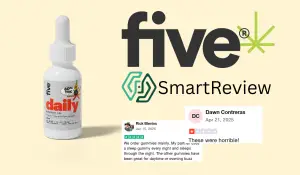
Key Features Pros Cons Real User Experience Final Verdict: Is Five CBD Full-Spectrum CBD+THC Oil Worth It? Five CBD Full-Spectrum CBD+THC Oil delivers where it...
Read More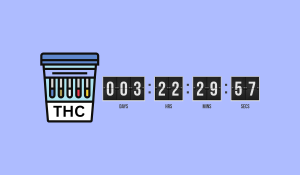
Does THCA Show Up in Drug Tests? The question of whether THCA shows up in drug tests is nuanced and depends on several factors. THCA...
Read More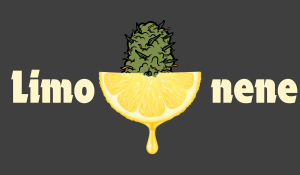
What is Limonene? Limonene is a naturally occurring aromatic compound that belongs to the family of terpenes. Terpenes are organic compounds produced by a variety...
Read More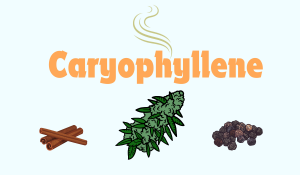
What Does the Terpene Caryophyllene Do? Caryophyllene, a unique sesquiterpene found in various plants including cannabis, black pepper, and cloves, stands out for its ability...
Read More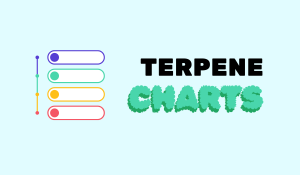
Presence in Cannabis and Other Plants Terpenes are abundantly present in cannabis, alongside other plants like mint, lemon, and pine. In cannabis, terpenes enrich the...
Read More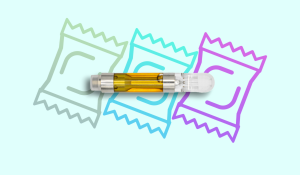
Rising Popularity in the Cannabis Industry The popularity of THCA carts is on the rise in the cannabis industry. This growth can be attributed to...
Read More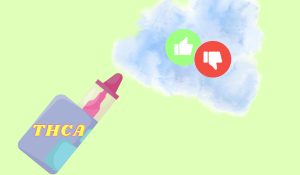
A THCA vape is a device used to vaporize THCA-rich cannabis extracts. These vapes heat the THCA just enough to create vapor, but not so...
Read More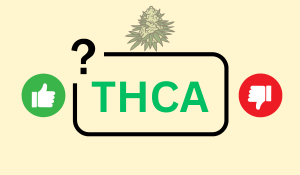
Chemical Structure and Properties THCA is like the caterpillar to THC’s butterfly. It’s the precursor, the starting point. In scientific terms, it’s a carboxylic acid...
Read More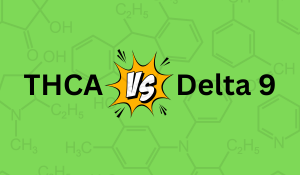
The cannabis plant contains over 100 different cannabinoids, each with its unique properties and effects. Among these, THCA and Delta 9 THC stand out due...
Read More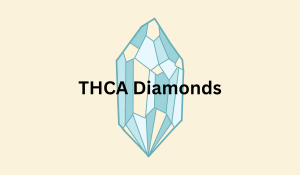
What Are THCA Diamonds? Chemical Composition and Structure THCA diamonds are pure, crystalline forms of THCA (tetrahydrocannabinolic acid). They look like little transparent crystals, kind...
Read More